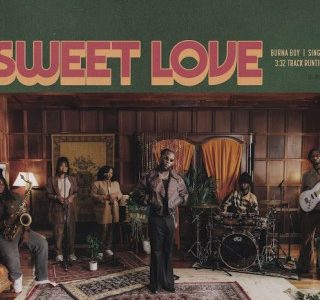Introduction: The Protest Voice in Music
Music has always been a tool for resistance — a rhythm that amplifies the cries, hopes, and dreams of a people.
In Africa, that rhythm today is Afrobeats, a genre that doesn’t just make the world dance but also makes it listen.
As the sound of a new generation, Afrobeats activism continues the legacy of using music as a weapon for social justice, political awareness, and cultural pride.
From the days of Fela Kuti’s fiery protest songs to the digital-age movement of #EndSARS, the beat has always spoken truth to power.
Fela Kuti: The Political Roots of Afrobeats Activism
Before it became a global pop phenomenon, Afrobeats was born from Afrobeat — the revolutionary sound of Fela Anikulapo Kuti.
In the 1970s and ’80s, Fela turned his music into a megaphone for the oppressed. His songs like “Zombie”, “Sorrow, Tears and Blood”, and “Coffin for Head of State” criticized government corruption, military brutality, and social injustice.
Fela’s activism came at a cost — arrests, beatings, and the destruction of his Kalakuta Republic — but his voice ignited a cultural consciousness that continues to inspire modern Afrobeats artists.
He taught that rhythm is not just for entertainment; it’s for enlightenment.
#EndSARS Movement and Afrobeats Artists
Fast forward to 2020, and the protest rhythm returned — this time in the digital age.
During the #EndSARS movement, young Nigerians took to the streets to demand an end to police brutality, and Afrobeats became the soundtrack of the revolution.
Songs like “FEM” by Davido, “20 10 20” by Burna Boy, and “Message” by Falz echoed through protests, playlists, and social media.
Artists didn’t just make songs — they used their platforms to mobilize, donate, and amplify the movement worldwide.
Davido met with government officials; Burna Boy’s visuals honored victims; Falz became one of the strongest activist voices in modern Afrobeats.
The moment proved that Afrobeats is more than party music — it’s a voice for the people.
The New Wave of Conscious Songs
While the global rise of Afrobeats has been fueled by hits about love and celebration, a new conscious wave is emerging.
Artists like Burna Boy, Falz, Asa, Mr Eazi, and Omah Lay are blending activism with art — addressing issues such as governance, inequality, and African empowerment.
Burna Boy’s “Monsters You Made” and “Collateral Damage” confront colonial legacies and corruption, while Falz’s “Johnny” mourns victims of injustice.
Even pop-leaning stars like Wizkid and Rema have used their platforms to speak out about youth struggles, mental health, and national pride.
This wave shows that social awareness and commercial success can coexist — that the beat can both entertain and educate.
The Power of Social Commentary in Music
Music moves people — emotionally, physically, and politically.
In Africa, where storytelling is woven into every drumbeat, Afrobeats’ ability to carry messages of justice and change is unmatched.
Social commentary in Afrobeats doesn’t always sound angry — sometimes it’s subtle, coded in metaphors and street slang.
But whether through protest anthems or hopeful ballads, artists remind the world that the African youth are awake and demanding a better future.
This mix of activism and artistry gives Afrobeats its authentic power — it’s not just global pop; it’s the sound of a generation rewriting its destiny.
How Fans Engage with Activism Through Sound
Fans aren’t just listeners anymore — they’re participants.
With social media, streaming, and live events, Afrobeats fans have turned songs into movements.
During protests, playlists of empowerment — from Fela to Burna Boy — became fuel for resistance.
Hashtags like #EndSARS, #JusticeForMohbad, and #WeMove demonstrate how music inspires activism and keeps conversations alive.
Through streaming, sharing, and viral challenges, fans amplify the message — proving that activism can be danced to.
Conclusion: When the Beat Speaks, the World Listens
Afrobeats continues to evolve — from dance floors to demonstrations, from Lagos to London.
But one thing remains constant: when the beat speaks, people listen.
Artists are no longer just entertainers; they are storytellers, educators, and revolutionaries shaping Africa’s future through sound.
The drums that once carried rebellion now echo across the world — reminding everyone that music is still Africa’s loudest protest.














